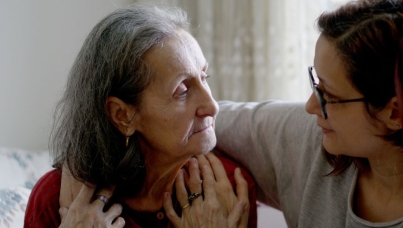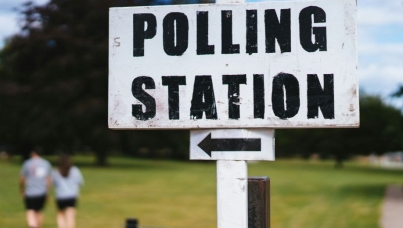Political Attitudes in Great Britain for September 1997
Data on satisfaction with party leaders, economic optimism, issues facing Britain, voting intention.
Research study conducted for The Times 26-29 September 1997
Q3 Are you satisfied or dissatisfied with the way the Government is running the country?
Q4 Are you satisfied or dissatisfied with the way Mr Blair is doing his job as Prime Minister?
Q5 Are you satisfied or dissatisfied with the way Mr Hague is doing his job as leader of the Conservative Party?
Q6 Are you satisfied or dissatisfied with the way Mr Ashdown is doing his job as Leader of the Liberal Democrats?
Q7 What would you say is the most important issue facing Britain today?
Q8 What do you see as other important issues facing Britain today?
Q9 Do you think that the general economic condition of the country will improve, stay the same, or get worse over the next 12 months?
Q10-12 Here is a list of things both favourable and unfavourable that have been said about various political parties. Read through the list slowly keeping the ... party in mind. Every time you come to a statement that fits your ideas or impressions of the party just tell me the letter next to it.
Q13 Which party did you vote for at the General Election in May 1997? If you are not sure, or did not vote, please say so.
MORI interviewed a representative quota sample of 1,916 adults aged 18+ at 168 sampling points across Great Britain. Fieldwork was conducted face-to-face on 26-29 September 1997. Data were weighted to match the profile of the population. An asterisk (*) denotes a figure between zero and 0.5%. Base: All respondents, unless stated.
Q1 How would you vote if there were a General Election tomorrow? (If undecided or refused at Q1) Q2 Which party are you most inclined to support?
| % | |
| Conservative | 25 |
| Labour | 59 |
| Lib Dem | 13 |
| Scot / Welsh Nationalist | 2 |
| Green Party | * |
| Referendum Party | * |
| Other | 1 |
|
|
|
| Would not vote | 9 |
| Undecided | 4 |
| Refused | 1 |
| Satisfied | Dissatisfied | Don't know | |
| % | % | % | |
| Government | 57 | 20 | 22 |
| Blair | 75 | 13 | 12 |
| Hague | 18 | 46 | 36 |
| Ashdown | 60 | 15 | 27 |
| Q7/8 | |
| % | |
| National Health Service/Hospitals | 45 |
| Education/schools | 45 |
| Unemployment/factory closure/lack of industry | 35 |
| Crime/law & order/violence/vandalism | 28 |
| Common Market/EU/Europe/Single European Currency | 21 |
| Economy/economic situation | 17 |
| Pensions/welfare security | 12 |
| Drug abuse | 7 |
| Pollution/environment | 7 |
| Housing | 7 |
| Morality/individual behaviour | 6 |
| Race relations/immigration/immigrants | 4 |
| Transport/public transport | 4 |
| Inflation/prices | 4 |
| Northern Ireland | 2 |
| Scottish/Welsh Assembly | 2 |
| Taxation | 2 |
| Defence/foreign affairs | 2 |
| Countryside/rural life | 1 |
| Local government/council tax | 1 |
| Nuclear weapons/nuclear war/disarmament | 1 |
| AIDS | 1 |
| Animal welfare | * |
| Beef/BSE/Mad Cow Disease | * |
| Pound/exchange rate/value of pound | * |
| Privatisation | * |
| Trade unions/strikes | * |
| Other | 11 |
| Don't know | 4 |
| % | |
| Improve | 36 |
| Stay the same | 37 |
| Get worse | 19 |
| Don't know | 7 |
| Con Q10 | Lab Q11 | Lib Dem Q12 | |
| % | % | % | |
| Keeps it promises | 4 | 16 | 8 |
| Understands the problems facing Britain | 14 | 48 | 30 |
| Represents all classes | 6 | 36 | 32 |
| Looks after the interests of people like us | 8 | 28 | 14 |
| Moderate | 11 | 21 | 30 |
| Extreme | 11 | 3 | 2 |
| Concerned about the people in real need in Britain | 7 | 40 | 31 |
| Has a good team of leaders | 6 | 36 | 18 |
| Will promise anything to win votes | 38 | 25 | 15 |
| Out of touch with ordinary people | 59 | 7 | 8 |
| Has sensible policies | 12 | 37 | 32 |
| Too dominated by its leader | 10 | 15 | 13 |
| Professional in its approach | 11 | 33 | 18 |
| Divided | 50 | 8 | 7 |
| No opinion | 9 | 7 | 21 |
| % | |
| Conservative | 23 |
| Labour | 45 |
| Lib Dem | 10 |
| Scot / Welsh Nationalist | 1 |
| Referendum Party | 1 |
| Green Party | * |
| Other | * |
|
|
|
| Did not vote | 16 |
| Too young | 1 |
| Can't remember | * |
| Refused | 2 |
Technical details
MORI interviewed a representative quota sample of 1,916 adults aged 18+ at 168 sampling points across Great Britain. Interviews were conducted face-to-face on 26-29 September 1997. Data were weighted to match the profile of the population.
The voting intention figures exclude those who say they would not vote (7%), are undecided (4%) or refuse to name a party (1%). All figures are in percentages. Where percentages do not sum to 100, this may be due to multiple responses, the exclusion of don't knows or computer rounding. An asterisk (*) denotes a figure between zero and 0.5%.



